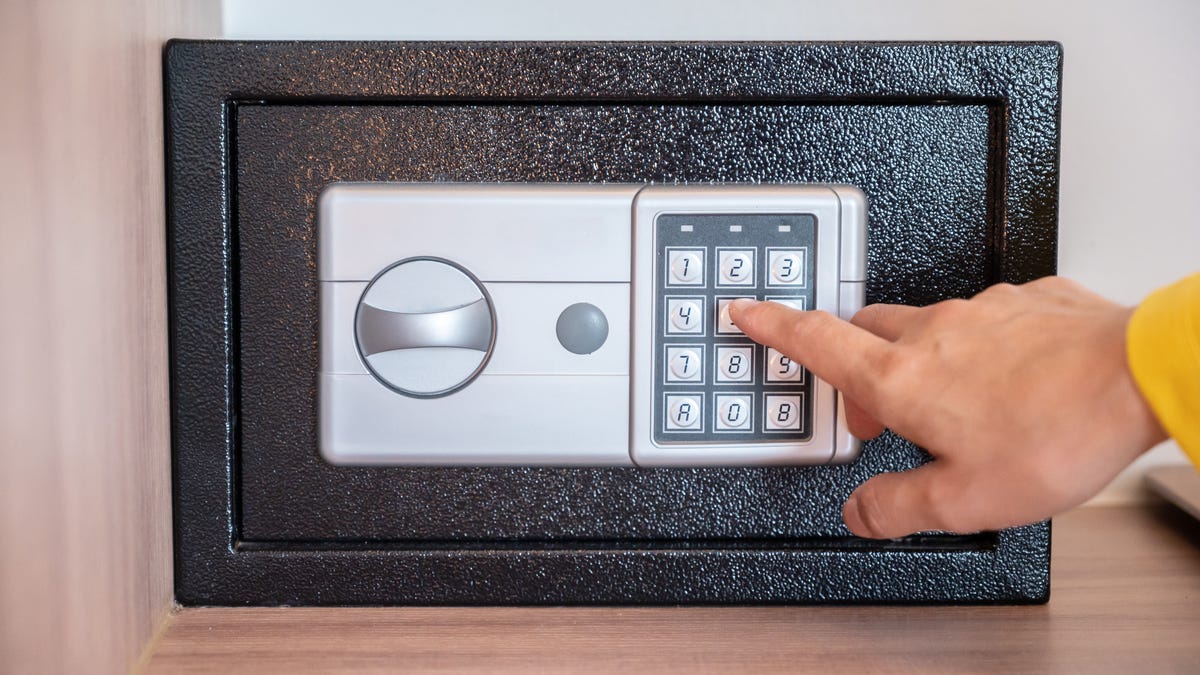 Why You Can Trust CNET
Why You Can Trust CNET 6 Important Documents and Items That You Should Definitely Keep in a Safe
For some valuable or irreplaceable personal items, it's better to be safe than sorry.

Safes can keep important documents and other valuables protected even in the case of a break-in or fire.
Security cameras, alarms, smart locks, sensors and home security systems can all alert you if someone enters your home, but they can't guarantee that your most important and cherished possessions will remain protected. One sure way to make certain that the items that you absolutely can't live without remain in your possession should the worst-case scenario happen is by placing them in a safe.
A safe is the last line of defense against property loss, whether it's from theft or some other disaster like a flood or fire. It's the best place to keep your valuables, whether that value is monetary, sentimental or personal. You can't keep everything in your safe, so it's important to decide what you'll want to keep in this protective box. These are the items that we recommend you protect in a safe at home.
For more home security essentials, check out how to keep your security cameras from being hacked and read up on using an old smartphone as a security camera. Plus, read about the most ideal locations for your home security cameras.
1. Personal documents
A safe is an ideal place to keep your important personal documents. Not only does it accomplish the goal of keeping them protected -- a fireproof safe will make sure they survive a fire or other disasters, too -- but it also provides the convenience of keeping all these documents in the same place. You won't have to go rifling through your files to find them when you know they're sitting in your safe.
As for which documents you should consider placing in your safe, anything that's essential to your life and would be a potential pain to replace, not to mention costly. Your passport should go in your safe when you aren't traveling. Your birth certificate and social security card can be kept in your safe, as they're essential documents needed to verify your identity.
2. Financial documents
Like your personal documents, vital financial documents are worth protecting and are a hassle if you lose them. The deed to any property you own is good to keep in your safe. Likewise, you should protect the title to any vehicle that you have. If you have any inheritance or beneficiary forms, these are worth protecting as well. Retirement plans, pension forms and the like should also be safeguarded. If a document proves that you are entitled to something of value, consider keeping it in your safe.
3. Health documents
Health documents can be incredibly important, and you'll want to be able to access them when you need them. For that reason, you should store them in your safe. Any insurance or essential medical documents including those related to your medical history are also worth storing.
If you have life insurance, stash it in your safe along with any files that relate to end-of-life care, such as a will or power of attorney. Just make sure that these documents can be accessed by those who need them when the time comes.
4. Cash
If you have any large sums of cash that you keep in case of emergency, it's best to stash it in your safe. While there might be more convenient places to put it that you can grab should you need to get your hands on some money right away, it's best to make sure that the cash is both out of sight and out of reach of anyone who isn't supposed to get to it. If someone breaks in and finds cash, they will almost certainly take it.
Cash, heirlooms, jewelry and even sentimental photos belong in a locked safe.
5. Jewelry
If you have any valuable jewelry, whether it's a rare or expensive piece or if it's a family heirloom with lots of sentimental value, you should lock it up. Jewelry is a common target during a break-in because it can reliably be sold for cash. If it can fit in your safe, keep it there.
6. Photos
Photos likely have sentimental value to you. Keeping them in your safe -- whether as prints or on a backup hard drive -- is a good way to make sure they don't end up getting destroyed in a disaster. Likewise, if you have any photos that contain sensitive material or might be compromising to you, it's worth considering putting them in your safe to avoid having them end up in the wrong hands.
Buying a safe is a great way to protect your most important belongings and provide yourself with peace of mind. You'll know exactly where your valuables and essentials are at all times, and you can rest easy knowing they're protected from just about everything. Just don't keep the combination or key somewhere easily accessible. The last thing that you want to do is give someone the ability to crack open your safe and get to your goods.
You can also learn more about securing your home by reading up on where to place security cameras and how to discourage car break-ins.